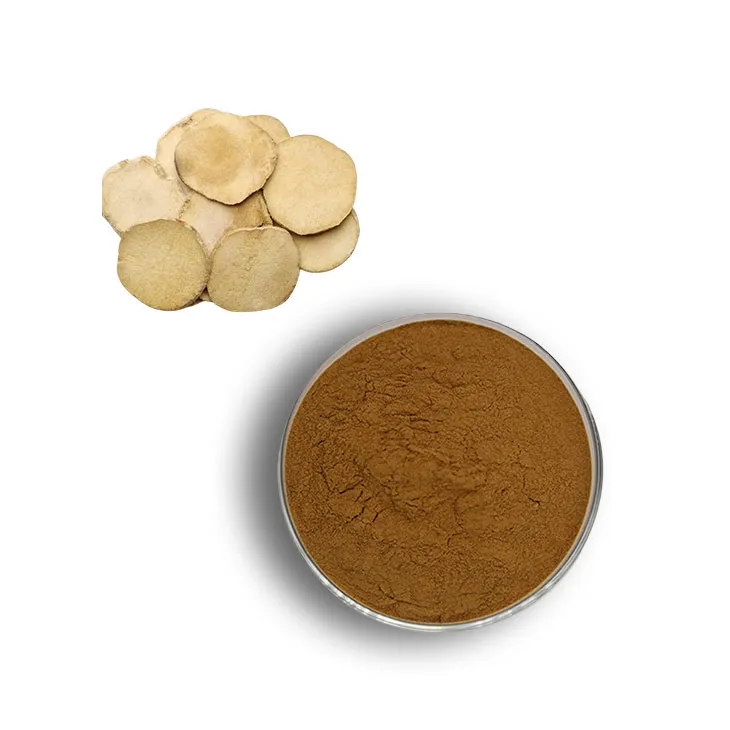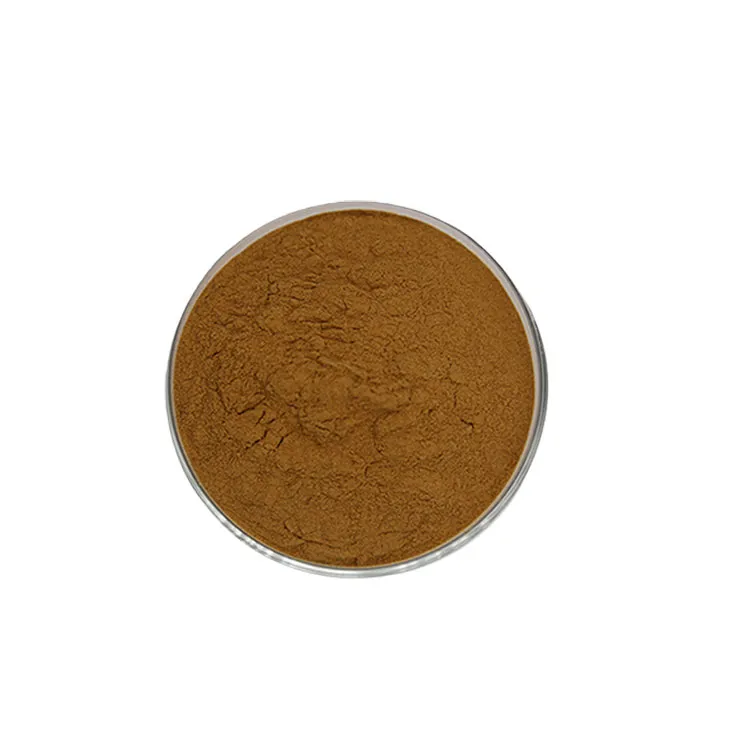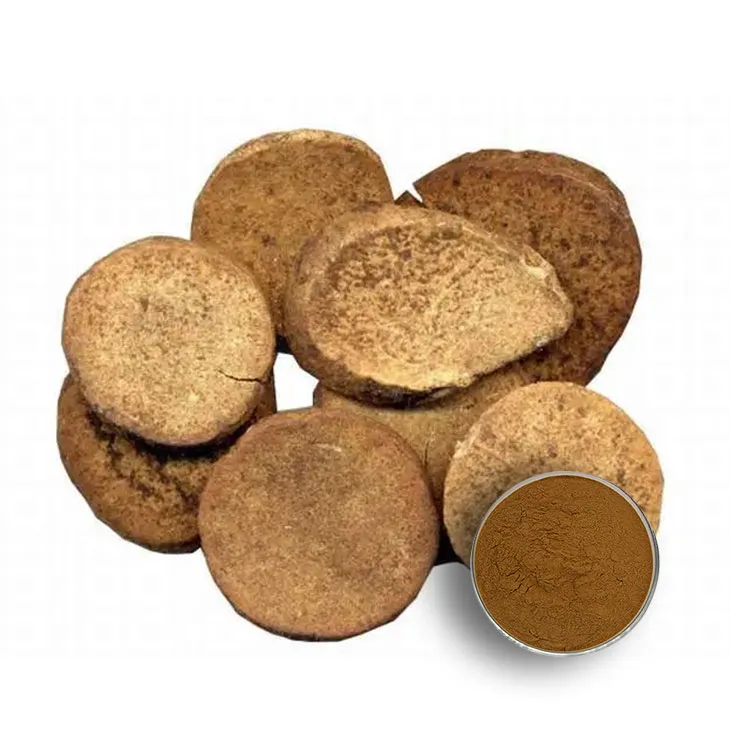- 0086-571-85302990
- sales@greenskybio.com
Beyond the Herbal Remedy: The Future of Alisma Extract in Modern Medicine and Beauty
2024-07-03

1. Introduction
Alisma Extract has a long - standing history in herbal remedies. However, in recent years, it has caught the attention of modern medicine and the beauty industry. This is due to its potential to offer a wide range of benefits that go beyond traditional uses. In this article, we will explore the chemical composition of Alisma Extract and how its bioactive compounds can be harnessed in treating various diseases, as well as its applications in the beauty field.

2. Chemical Composition of Alisma Extract
Alisma extract contains a variety of bioactive compounds. Triterpenoids are one of the major components. These compounds have been shown to possess numerous biological activities. For example, they can interact with cellular receptors and enzymes, modulating various physiological processes.
Another important group of compounds in Alisma extract are alkaloids. Alkaloids in Alisma may play a role in its pharmacological effects. They can affect neurotransmitter release and receptor binding, which could potentially be related to its effects on certain diseases.
Polysaccharides are also present in Alisma extract. These polysaccharides may contribute to its immunomodulatory effects. They can interact with immune cells, such as macrophages and lymphocytes, enhancing or suppressing the immune response depending on the context.

3. Alisma Extract in Modern Medicine
3.1. Metabolic Disorders
Metabolic disorders, such as diabetes and obesity, are becoming major health concerns worldwide. Alisma extract shows promise in the treatment of these disorders.
Studies have suggested that the bioactive compounds in Alisma extract can regulate glucose metabolism. For example, they may enhance insulin sensitivity in cells. This means that cells can respond more effectively to insulin, which is crucial for maintaining normal blood glucose levels.
In the case of obesity, Alisma extract may play a role in lipid metabolism. It could potentially reduce the absorption of dietary fats in the intestine or increase the breakdown of stored fats in the body. This could lead to a reduction in body weight and fat mass.
3.2. Kidney Health
The kidneys play a vital role in filtering waste products from the blood and maintaining fluid and electrolyte balance. Alisma extract has been traditionally used for kidney - related problems, and modern research is beginning to uncover its mechanisms.
One of the ways Alisma extract may benefit kidney health is by reducing inflammation in the kidneys. Inflammation can damage the kidney tissues and impair its function. The anti - inflammatory properties of Alisma extract can help protect the kidneys from such damage.
Moreover, Alisma extract may also have a diuretic effect. It can increase the production of urine, which helps in flushing out toxins and excess fluids from the body. This can relieve the burden on the kidneys and improve their overall function.

4. Alisma Extract in the Beauty Industry
4.1. Antioxidant Properties
The skin is constantly exposed to environmental stressors, such as ultraviolet (UV) radiation, pollution, and free radicals. These factors can cause oxidative damage to the skin cells, leading to premature aging, wrinkles, and other skin problems.
Alisma extract has strong antioxidant properties. The bioactive compounds in it can scavenge free radicals, preventing them from causing damage to the skin. This can help maintain the integrity of the skin cells and keep the skin looking youthful and healthy.
4.2. Anti - inflammatory Properties
Inflammatory skin conditions, such as acne, eczema, and psoriasis, are common and can be difficult to treat. Alisma extract's anti - inflammatory properties may offer a new approach to treating these conditions.
When applied topically, Alisma extract can reduce inflammation in the skin. It can soothe irritated skin, reduce redness, and promote the healing of damaged skin. This makes it a potentially valuable ingredient in skincare products for those with inflammatory skin problems.

5. Challenges and Future Directions
Despite the promising potential of Alisma extract in modern medicine and beauty, there are still several challenges that need to be addressed.
5.1. Standardization of Extract
One of the main challenges is the standardization of Alisma extract. Different extraction methods can result in extracts with varying compositions and potencies. This can make it difficult to ensure consistent results in clinical trials and product development. To overcome this, more research is needed to develop standardized extraction protocols that can produce high - quality, consistent extracts.
5.2. Safety and Toxicity
While Alisma extract has been used in herbal medicine for a long time, its safety and toxicity in modern applications need to be further evaluated. In particular, long - term use and high - dose applications may have potential risks. Therefore, comprehensive safety studies are required to determine the appropriate dosage and usage of Alisma extract in different applications.
5.3. Clinical Trials
Most of the current evidence for the benefits of Alisma extract is based on pre - clinical studies. To fully establish its efficacy in treating diseases and its effectiveness in beauty applications, more well - designed clinical trials are needed. These trials should include large sample sizes, appropriate control groups, and long - term follow - up to accurately assess the benefits and risks of Alisma extract.
6. Conclusion
Alisma extract is emerging as a potentially valuable ingredient in modern medicine and beauty. Its bioactive compounds offer a wide range of properties that can be harnessed for treating diseases and improving skin health. However, more research is needed to overcome the challenges related to standardization, safety, and clinical validation. With further investigation, Alisma extract has the potential to play an important role in shaping the future of these fields.
FAQ:
What are the main bioactive compounds in Alisma extract?
The main bioactive compounds in Alisma extract include terpenoids, alkaloids, and polysaccharides. These compounds are thought to be responsible for its various potential health - and beauty - related properties. Terpenoids, for example, may play a role in its antioxidant effects, while alkaloids could be involved in its impact on metabolic processes.
How does Alisma extract contribute to treating metabolic disorders?
Alisma extract may contribute to treating metabolic disorders through multiple mechanisms. Its bioactive compounds might help regulate lipid metabolism, for instance. They could potentially influence the way the body processes fats, reducing lipid accumulation. Additionally, it may also play a role in glucose metabolism, helping to maintain normal blood sugar levels.
What makes Alisma extract beneficial for kidney health?
Alisma extract has properties that are potentially beneficial for kidney health. It may have a diuretic effect, which can help the kidneys in excreting waste products more efficiently. Also, its anti - inflammatory properties can reduce inflammation in the kidneys, which is often associated with various kidney diseases.
How can the antioxidant and anti - inflammatory properties of Alisma extract revolutionize skincare?
The antioxidant property of Alisma extract can protect the skin from oxidative stress caused by free radicals. Free radicals can damage skin cells, leading to premature aging. By neutralizing these free radicals, Alisma extract can help keep the skin looking youthful. Its anti - inflammatory property can also soothe irritated skin, reduce redness, and potentially treat skin conditions associated with inflammation, such as acne and eczema.
What are the current research limitations regarding Alisma extract in modern medicine and beauty?
One of the current research limitations regarding Alisma extract in modern medicine and beauty is the lack of large - scale, long - term clinical trials. Most of the evidence so far is based on in - vitro studies or small - scale animal studies. Another limitation is the need for a more in - depth understanding of the exact mechanisms by which its bioactive compounds interact with the human body at a molecular level in both medical and beauty applications.
Related literature
- Title: The Chemical Constituents and Pharmacological Effects of Alisma Extract"
- Title: "Alisma Extract in Skincare: A New Frontier in Cosmetic Dermatology"
- Title: "Potential of Alisma Extract in the Treatment of Metabolic Syndrome"
- ▶ Hesperidin
- ▶ Citrus Bioflavonoids
- ▶ Plant Extract
- ▶ lycopene
- ▶ Diosmin
- ▶ Grape seed extract
- ▶ Sea buckthorn Juice Powder
- ▶ Fruit Juice Powder
- ▶ Hops Extract
- ▶ Artichoke Extract
- ▶ Mushroom extract
- ▶ Astaxanthin
- ▶ Green Tea Extract
- ▶ Curcumin
- ▶ Horse Chestnut Extract
- ▶ Other Product
- ▶ Boswellia Serrata Extract
- ▶ Resveratrol
- ▶ Marigold Extract
- ▶ Grape Leaf Extract
- ▶ New Product
- ▶ Aminolevulinic acid
- ▶ Cranberry Extract
- ▶ Red Yeast Rice
- ▶ Red Wine Extract
-
Rosemary extract
2024-07-03
-
Kupilu Extract
2024-07-03
-
Dandelion Leaf Extract
2024-07-03
-
Citrus bioflavonoids
2024-07-03
-
Chaste Berry Extract
2024-07-03
-
White Willow Bark Extract
2024-07-03
-
Polygonum Cuspidatum Extract
2024-07-03
-
Honeysuckle Pollen
2024-07-03
-
Licorice Root Extract Powder
2024-07-03
-
Peppermint Oil
2024-07-03





















